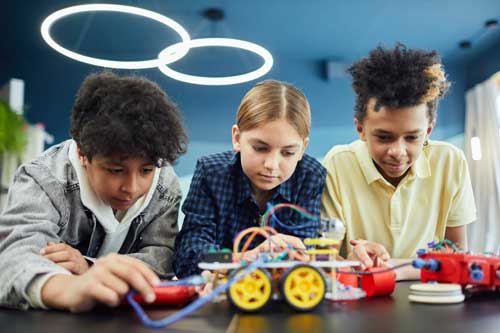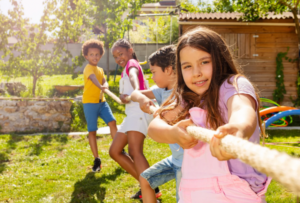Elementary school students, teachers and their parents are likely not thinking about “hard” and “soft” skills needed for workforce readiness.
But employers are. Only 50% of hiring managers think college graduates are well-prepared for the workforce. According to a survey of Adecco, 92% of executives think that American workers are not as skilled as they need to be, creating a skills gap. This is the divide between skills employers expect to have and the skills employees and job seekers actually possess.
According to LinkedIn’s 2019 Global Talent Trends report, the biggest reason jobs do not work out for an employee is a lack of soft skills.
Hard skills often refer to technical skills necessary to perform a job such as writing, public speaking, data analysis. In addition, they could include typing, writing, math and computer skills.
Soft skills are non-technical personal attributes, such as how employees interact with colleagues, solve problems, or manage time. They also include teamwork, creative thinking, and ability to network and resolve conflict.
Social-Emotional Learning (SEL) is all about teaching children soft skills that will help them in school and in life.
Soft Skills for Workforce Readiness
Monster’s 2021 Global Outlook noted that the top soft skills employers are looking for include dependability, teamwork/collaboration, flexibility and problem-solving. What is more, these skills are not specific to one field or job. They are highly transferrable and can be valuable in any job.
Soft skills are important to become a valuable employee who can work productively with a team. Also, they help an employee build relationships and solve problems, manage time, adapt to new situations and work under pressure.
Employers look for signs that an applicant will stay at their company long term. As a result, skills like conflict resolution, commitment and motivation may indicate longevity. In addition, the ability to accept and implement feedback is important to many employers, as they indicate the opportunity for improvement.
Organization with time management and attention to detail are also important soft skills. As a result, social skills can help an employee navigate workplace issue with confidence.
“Twenty-first-century leadership requires self-awareness, authenticity, empathy and the ability to self-manage emotions—especially in conflict, during crises, and under pressure,” said Matt Segneri, Director, Social Enterprise Initiative, Harvard Business School, in the E-book from Committee for Children about the importance of SEL for children.
In the same E-book, Reed Kock, president of the board of directors for the Committee for Children and former manager in various departments for Microsoft, said: “Companies know the route to success today depends in large part on a workforce with as much emotional intelligence as possible.”
Soft Skills and Social-Emotional Learning
An article by Forbes highlights five traits for successful leaders, and four of them can be tied directly to the SEL competencies outline by CASEL, the Collaborative for Academic, Social and Emotional Learning.
Charity for Change has been teaching elementary school children SEL skills since 2008, with scientifically proven outcomes. The goal of the program is to build character and charitable involvement, creating a foundation for mental wellness and academic and life success.
Character traits taught in the program include charity, citizenship, perseverance, kindness, self-control, tolerance, responsibility, integrity, cooperation, and respect. Pre- and post-program tests show that students in the program gain self-awareness, self-management, social awareness, relationship skills and responsible decision-making. They are life and work ready!
Click here for additional information about how the Charity for Change Program can help children develop workforce readiness.





